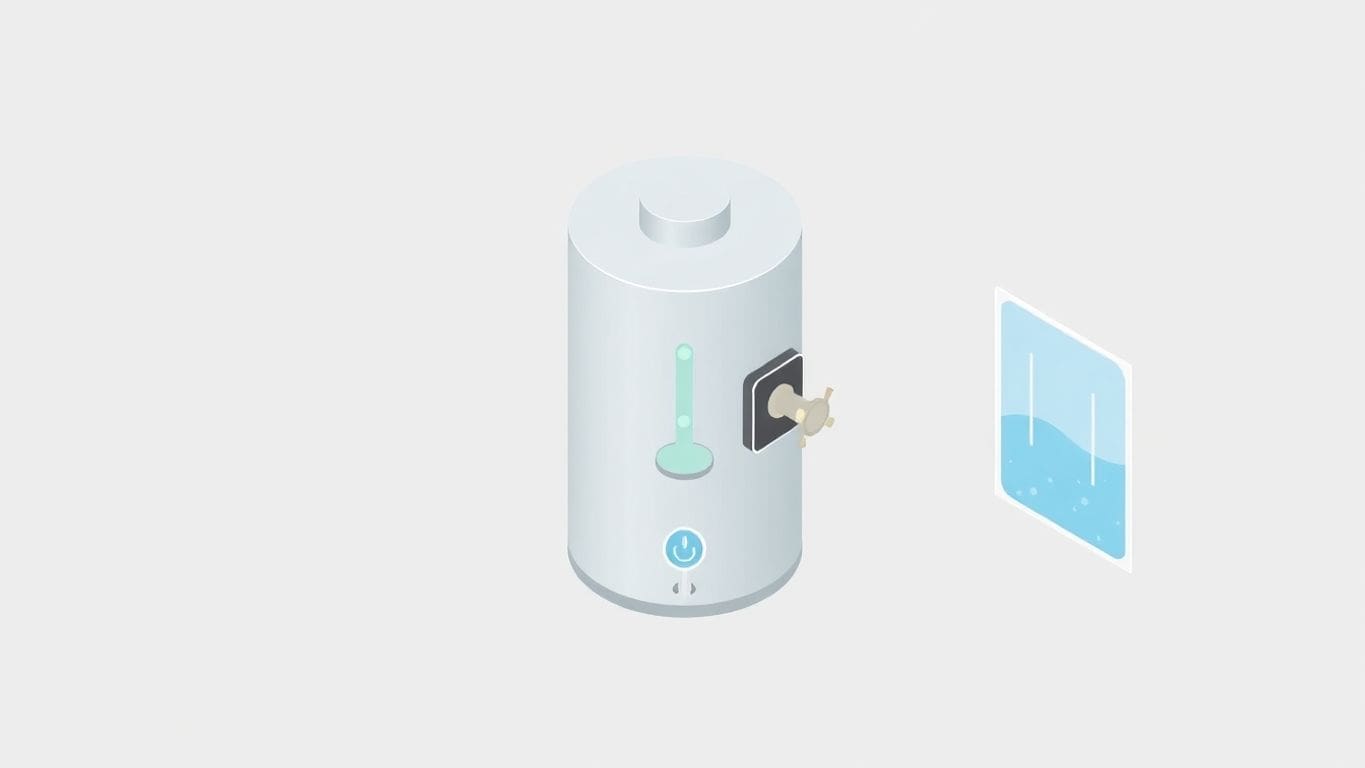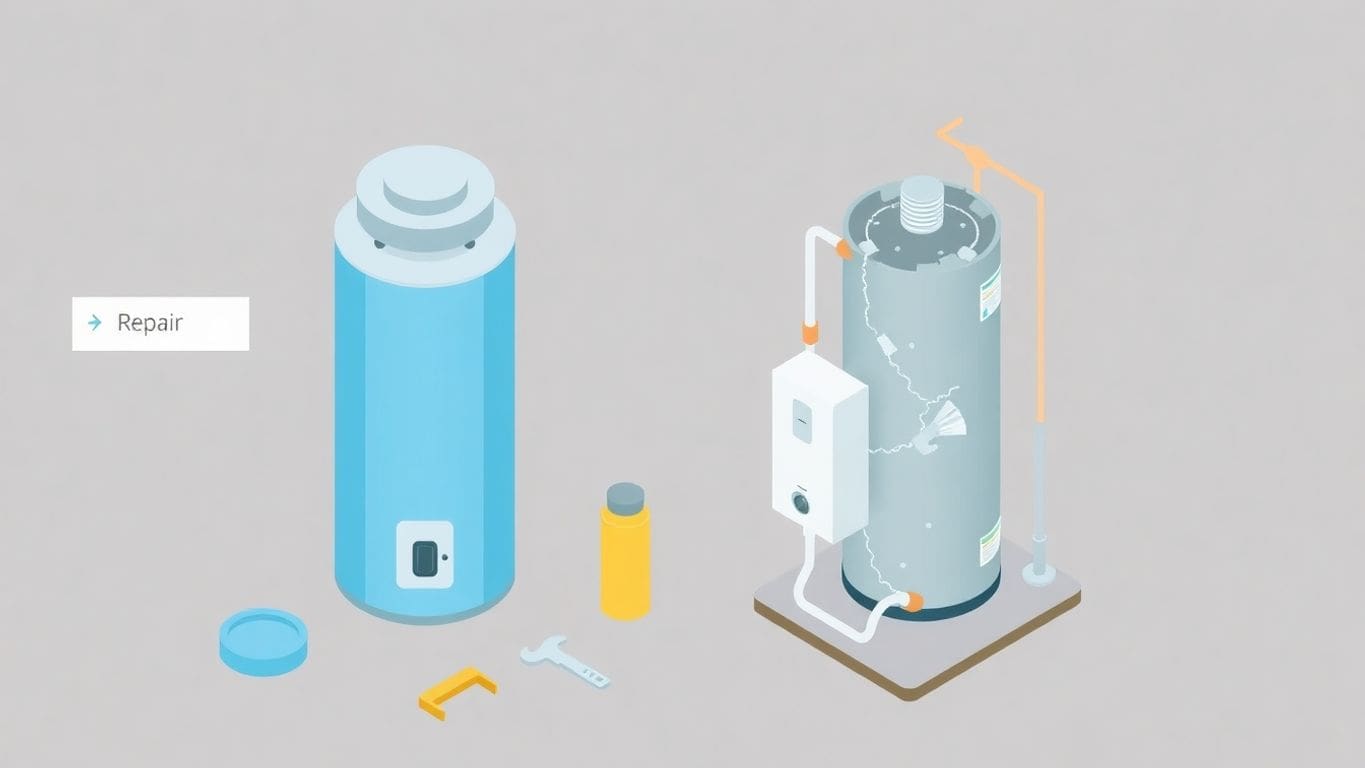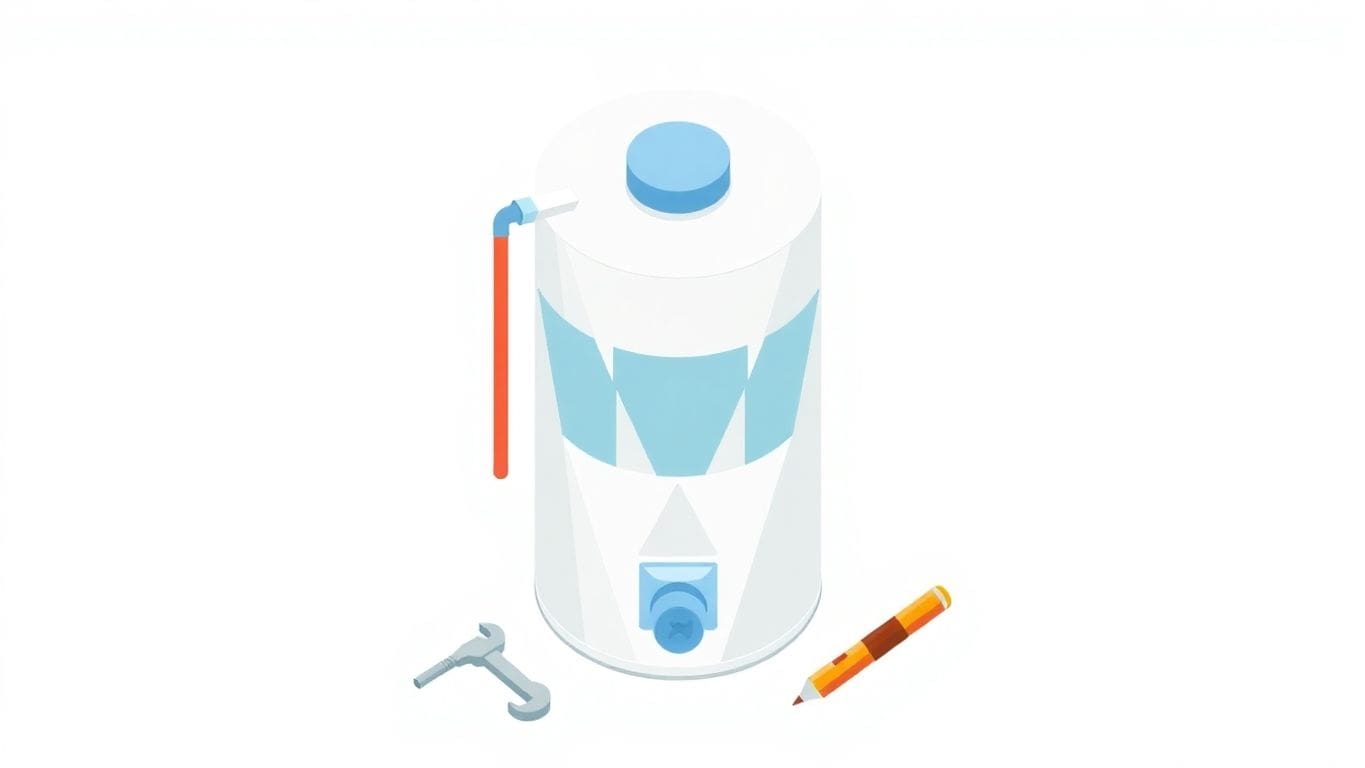
When the power goes out, many people wonder about their gas water heaters. Will water heater work without electricity? It’s a question worth exploring, especially since hot water is a necessity in most households. Let’s break down how gas water heaters operate and what you need to know about their functionality during power outages.
Gas water heaters are common in many homes. You use them for hot water for showers, washing dishes, and doing laundry. They use gas, like natural gas or propane, to heat the water. The hot water stays in a tank until you need it.
Gas water heaters heat water using a burner. The burner uses either a pilot light or an electronic system to start the flame. The heat warms the water in the tank from the bottom. Then, the hot water goes to the top and is ready when you turn on the faucet.
Gas water heaters mostly use gas, but some parts need electricity. Here’s a quick look:
Gas heaters have a few main parts that work together to give you hot water:
If your gas water heater has a pilot light, you might need to light it yourself when you first use the heater. Here’s how:
Turn the gas valve to "Off," wait a few minutes, then turn it to "Pilot."
Push down on the valve and use a lighter to light the pilot. Keep holding it down for about a minute.
Turn the valve to "On" to start the heater.
Gas water heaters mostly use gas to heat water, but electricity can still play a part. It’s not always obvious, so let’s look at how electricity gets used in these heaters.
Old-school gas water heaters have a pilot light that’s always on. It’s a small flame that constantly burns, ready to light the main burner when you need hot water. But newer heaters might use electronic ignition. These systems use electricity to create a spark that lights the burner. This means if the power is out, your heater might not be able to start.
Some gas water heaters have extra safety features that need electricity to work. These could be things like:
What happens when the power goes out? Well, it depends on your water heater. If you have an older model with a standing pilot light, you’ll probably still have hot water. But if you have a newer model with electronic ignition, you might be out of luck.
During a power outage, your gas water heater’s ability to function hinges on whether it uses a standing pilot light or an electronic ignition system. If it’s the latter, a lack of electricity could mean no hot water until the power returns.
Also, those safety features that need electricity won’t work. So, while the heater might still function, it won’t have those extra layers of protection.
One of the most common questions is: Can my gas water heater still work if the power goes out? The answer depends on the type of water heater you have. Let’s look at the different kinds.
Good news! If you have an older gas water heater with a pilot light, it will likely keep working during a power outage. These heaters don’t need electricity to operate. The pilot light is always on, so it can light the main burner when needed. This means you can still have hot water even when the lights are out.
Newer gas water heaters often use electronic ignition. Instead of a pilot light, they use an electric spark to light the burner. This is more energy-efficient, but it means they need electricity to work. If the power goes out, these heaters usually won’t work unless they have a backup power source.
Even if your gas water heater can run without electricity, there might be some limits during a power outage. For example, some heaters have safety features that need power to work. Also, if your heater uses electricity to control the water temperature, it might not work as well without power. Here are some things to keep in mind:
During a power outage, it’s a good idea to use hot water carefully. You don’t want to run out too quickly. Also, be aware of the limitations of your water heater and take extra safety precautions.
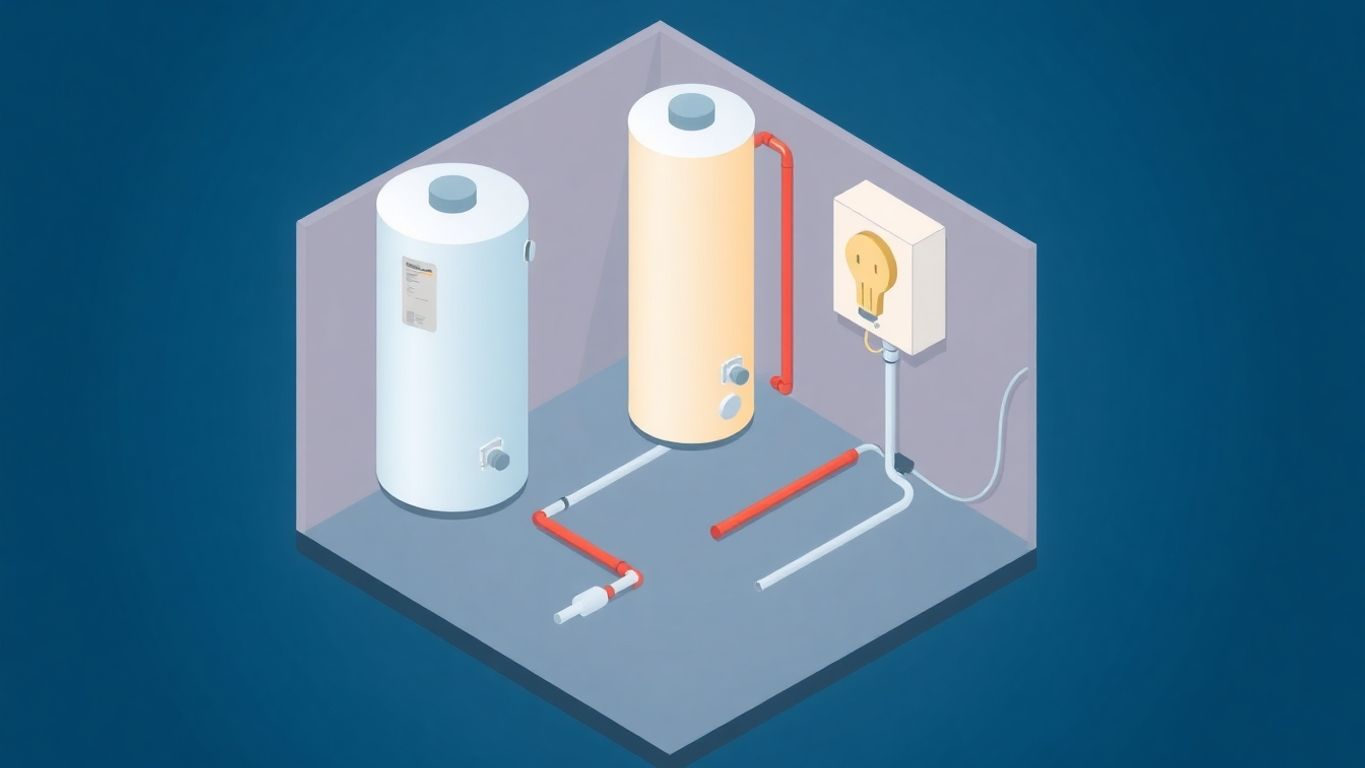
Power outages can be a pain, but with a little planning, you can still have hot water. Let’s look at some ways to get ready.
During a power outage, hot water is a luxury. By taking these steps, you can extend the time you have hot water available.
Some gas water heaters need electricity to work. If you have one of these, think about getting a backup power source.
Taking care of your water heater can help it work better, especially when the power is out.
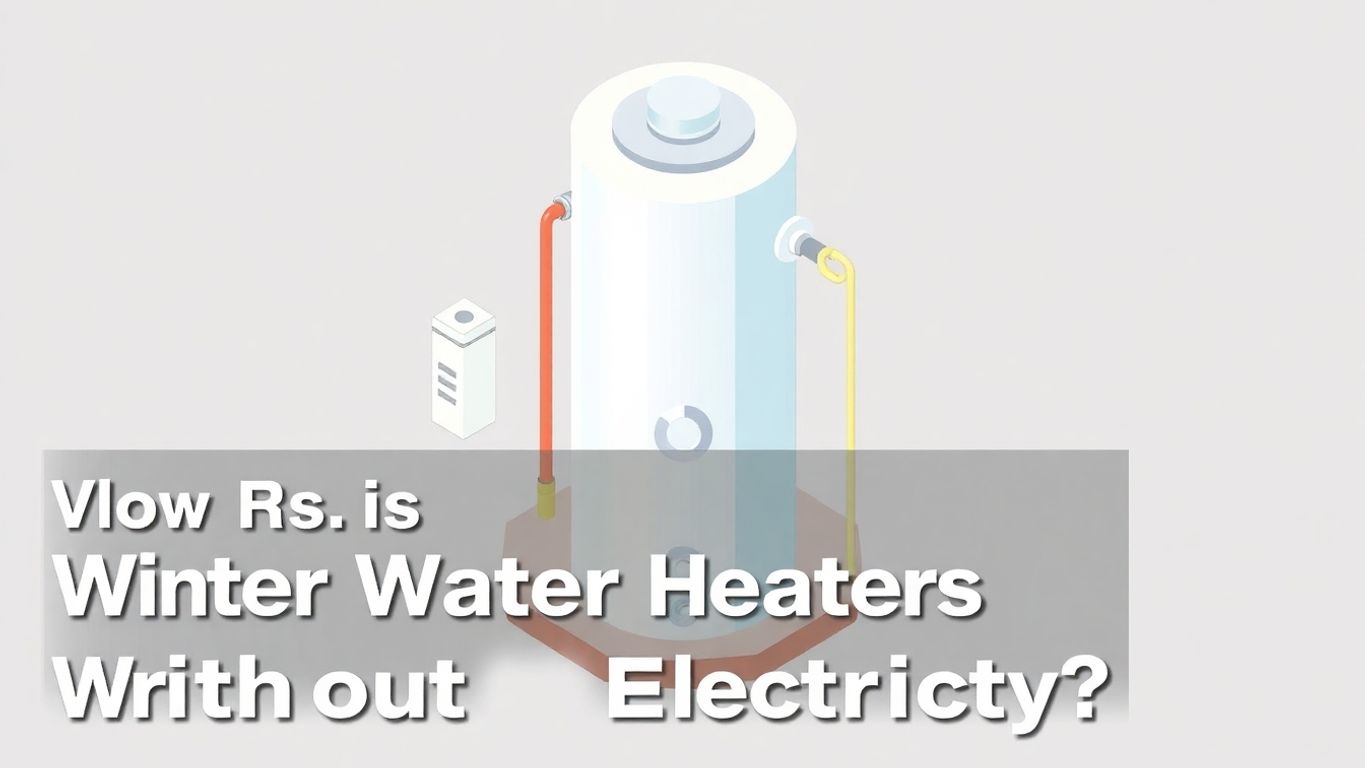
There are a lot of things people think they know about gas water heaters. Let’s clear up some common misunderstandings so you’re not caught off guard.
This is a big one! It’s not totally true. While some older gas water heaters with pilot lights can work without electricity, many newer models need power for their electronic ignition and safety features. So, don’t assume yours will work just fine during a blackout.
Not necessarily! Even if your gas water heater needs electricity to run, the water already in the tank will stay hot for a while. How long it stays hot depends on how well your tank is insulated. Think of it like a thermos; it keeps the heat in. You might have hot water for a day or so, depending. If you want to upgrade your water heater, consider one with better insulation.
Some people think pilot lights are super dangerous or that they waste a ton of energy. While it’s true that an old, inefficient pilot light can waste some gas, modern pilot lights are much better. Plus, they’re a pretty simple and reliable way to get hot water, especially if the power goes out. If you smell gas, though, that’s a sign of trouble, and you should call for help right away.
Even if you know a lot about your gas water heater, there are times when you need a pro. Don’t be afraid to call someone who knows their stuff. It’s better to be safe than sorry!
Sometimes, your water heater will give you signs that something is wrong. If you see any of these, it’s time to call for water heater repairs:
Think of your water heater like your car. It needs check-ups to keep running well. Regular inspections by a plumbing professional can:
Regular check-ups can save you money in the long run by preventing costly repairs and keeping your energy bills down.
Your water heater probably came with a warranty. It’s a good idea to know what it covers. Also, find out about service options in your area. Here’s what to think about:
It’s easy to forget that your choice of water heater affects the environment. Let’s look at how different types stack up.
Where your electricity comes from matters a lot. If your power company uses mostly coal, your electric water heater isn’t very green. But if you have solar panels, or your power comes from wind or hydro, you’re in much better shape. Electric water heaters can be powered by renewable energy sources, reducing your carbon footprint.
Gas water heaters burn natural gas or propane. Burning these fuels releases carbon dioxide, a greenhouse gas. Electric water heaters don’t directly produce these emissions, but the electricity used to heat the water might. It really depends on how that electricity is made. In areas that rely on fossil fuels for electricity, gas heaters might be better for the environment.
No matter what kind of water heater you have, using less hot water is always a good idea. Here are some ways to save energy:
Choosing an energy-efficient model can also make a big difference. Look for the Energy Star label when you’re shopping for a new water heater. These models use less energy and can save you money on your utility bills.
Electric water heaters are super simple: they use electricity to heat water. This means they 100% rely on having power. If the power goes out, so does your hot water. Unlike gas heaters that might still work with a pilot light, electric ones are totally dependent on your home’s electrical system. It’s just how they’re built.
With electric water heaters, you have more freedom in where you put them. You don’t need to worry about venting exhaust like you do with gas heaters. This can be a big plus if you’re short on space or have a specific spot in mind. You can put them:
Just remember, you’ll need an electrical outlet nearby. And it’s a good idea to keep it somewhere you can easily get to for maintenance.
Like anything, electric water heaters can have problems. Here are a few things that might happen:
Regular maintenance, like flushing the tank to remove sediment, can help prevent these issues.
Gas leaks are super dangerous. You need to know how to spot them. If you smell gas, it smells like rotten eggs. Don’t turn on any lights or use anything electrical if you smell gas. Get out of the house and call the gas company from somewhere else. They’ll come check it out. It’s better to be safe than sorry.
Water and electricity don’t mix. Make sure your water heater is installed correctly and grounded. If you see any frayed wires or anything that looks weird, call an electrician. Don’t try to fix it yourself unless you know what you’re doing. Electric shock is a real danger.
Know where your water heater’s shut-off valve is. If there’s a leak, you’ll want to turn off the water fast. Also, know how to turn off the gas if you have a gas water heater. Here’s what you should know:
It’s a good idea to show everyone in your house where these shut-off valves are. That way, anyone can turn them off in an emergency. You don’t want to be the only one who knows how to do it.
Gas water heaters can work without electricity, especially older models with pilot lights. However, some modern ones need electricity for ignition.
During a power outage, gas water heaters with pilot lights can still heat water, but those with electronic ignition may not work unless they have a backup.
Yes, you can still have hot water if you have a traditional gas water heater with a pilot light. It will keep working for a while.
Some safety features, like electronic gas valves and sensors, require electricity to function properly.
To prepare, consider a backup system or battery for ignition and keep up with regular maintenance to ensure it works well.
Yes, a common myth is that all gas water heaters don’t need electricity. Some features do need it, especially in modern units.
You should call a professional if you have trouble relighting the pilot light, hear strange noises, or notice a sudden drop in hot water.
Gas water heaters usually have a lower carbon footprint than electric ones, but it depends on how the electricity is generated.

